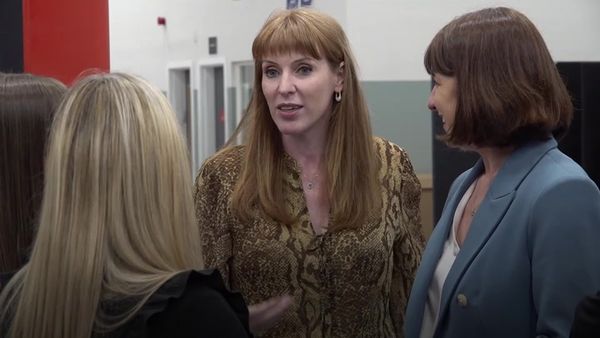
The late Chinese leader Jiang Zemin's visit to Japan in November 1998 left bitter memories for the Japanese.
On the grand occasion of his official visit to Japan, the first by a head of state of the People's Republic of China, Jiang called attention to historical issues between the countries. He called for a written apology from Japan and said at an Imperial banquet that Japan must keep learning lessons from history.
In China, Jiang, who died on Wednesday at 96, promoted patriotic education with criticism of Japan woven in. During the Sino-Japanese war, Jiang participated in student anti-Japanese resistance in Nanjing. This was probably the origin of his anti-Japanese sentiment. But there was another reason -- a political one -- for his persistence on historical issues.
In June 1989, Communist Party General Secretary Zhao Ziyang was ousted after the Tiananmen Square incident. The country's most powerful man, Deng Xiaoping, handpicked Jiang -- then Shanghai party secretary, who had kept a lid on potentially destabilizing events in that city -- to replace Zhao. In a society filled with anger and disillusionment with the party, Jiang's appointment came amid cold whispers that he was a "filler" or an "ordinary person without charisma."
In autumn of the same year, the fall of the Berlin Wall made an impression on the isolated general secretary. In 1991, the Soviet Union dissolved. "Patriotism and anti-Japan sentiment" were the concepts that Jiang desperately clung to in an effort to maintain the party's unifying power in a time of crisis.
Unexpectedly, I would say, Jiang remained in power for more than 12 years, being regarded as the core of "the third generation" of Chinese leadership after founding leader Mao Zedong and Deng, who took bold steps toward reform and opening up. Jiang's policy was characterized by adherence to a predetermined course that prioritized economic development and political stability above all. He entrusted the nation's economy to strong-armed Premier Zhu Rongji and the consolidation of power to his right-hand man Zeng Qinghong.
In foreign affairs, despite being critical of Japan, Jiang worked hard to maintain good relations with the United States and was referred to as "the biggest pro-U.S. politician in Chinese history," according to a diplomatic source. He also liked giving light performances, such as playing a piano used by Mozart on a visit to Europe.
China in Jiang's time was generally peaceful. The country, which has experienced repeated waves of conflict, starvation and bloodshed, became stronger and richer during this period, as symbolized by China's successful bid for the 2008 Beijing Olympics. The "ordinary person" had somehow laid the foundation for a great power.
On the other hand, distorted developmentalism also prevailed. There are many negative legacies, such as wealth disparity, corruption and environmental destruction. Jiang's continuation as chairman of the Central Military Commission even after stepping down as general secretary at the 2002 party congress had a significant impact on China's course. Growing conflict between his own faction and that of his successor Hu Jintao resulted in Xi Jinping, who at the time was viewed as less factional, taking over as general secretary in 2012.
Xi began an extraordinary third term at the party congress this October, seizing power and authority that is said to transcend even that of Deng, let alone Jiang or Hu. Patriotic education to emphasize the legitimacy of Xi and his party's rule has also been radicalized.
Tracing the origins of light and shadow in today's China leads us to see that much of it comes down to the merits and demerits of Jiang's politics.
Read more from The Japan News at https://japannews.yomiuri.co.jp/







